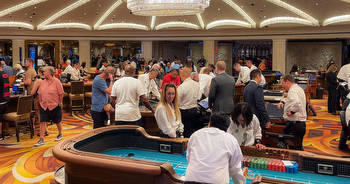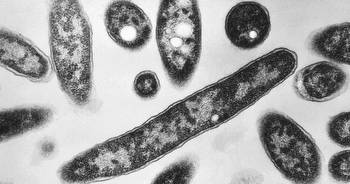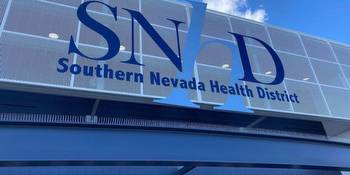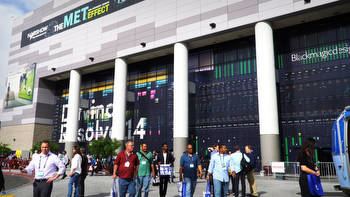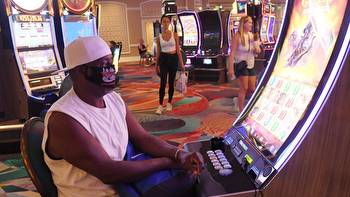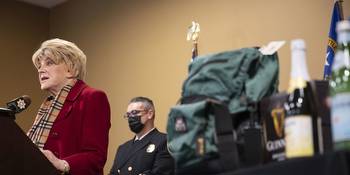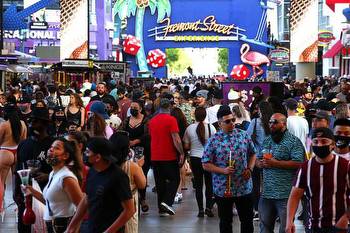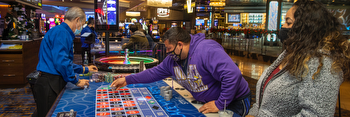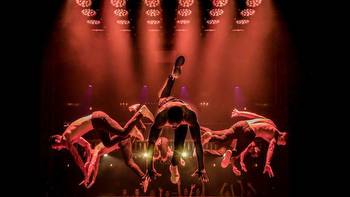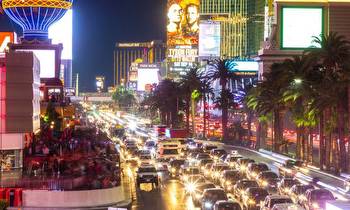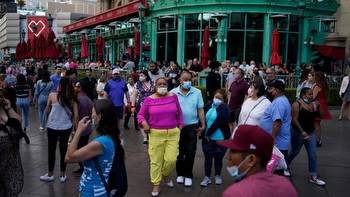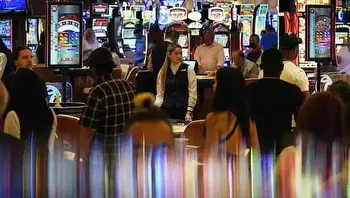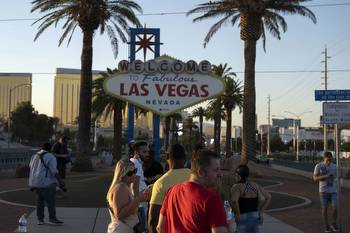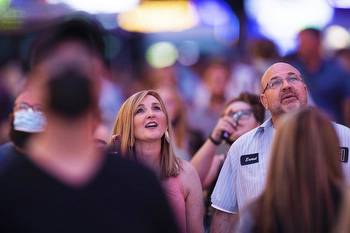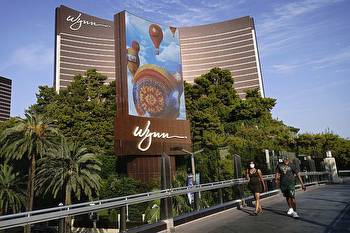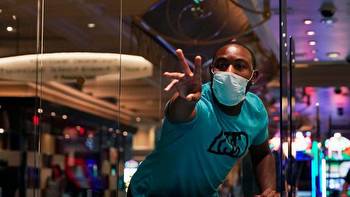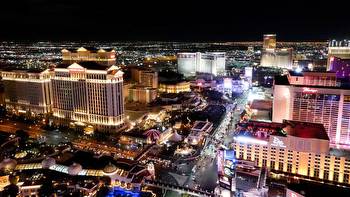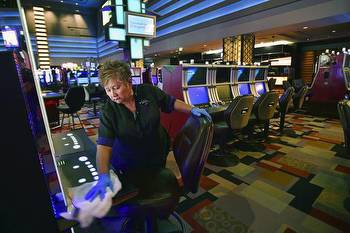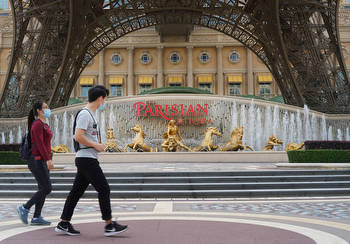As Las Vegas Reopens, a Huge Coronavirus Test for Casinos

It was among the last of the big conferences before the coronavirus pandemic shuttered the massive casinos lining the Las Vegas Strip in March. More than 1,000 people gathered at MGM Resorts International’s Mirage Hotel & Casino for the Women of Power Summit, after organizers assured them that the risk of attending the networking event for executive women of color was “extremely low.”
That seemed a reasonable bet, given that Las Vegas had yet to record a single coronavirus case. What no one realized was that one of the conference speakers, a New Yorker, had already contracted the virus by the time she landed at McCarran International Airport on March 6. Two days later, she was in a hospital.
Nevada’s case count now stands at more than 9,600, and as of Sunday afternoon, 438 people had died. But the case involving the Women of Power speaker is nowhere to be found in those grim totals, despite the fact that she stayed, tested positive, was hospitalized and recovered in Las Vegas.
That is because the state’s coronavirus tally does not include visitors who get sick there or soon after returning home. Instead, only state residents who test positive are counted.
If one of the trickiest aspects of containing the pandemic is figuring out when and where people contract the virus and then quickly tracing their contacts, then there is perhaps no place in the nation where that is as tricky a task as in Las Vegas, where last year guests outnumbered residents by 20 to 1.
Casinos along the Strip last week reopened their doors to a flood of visitors, masked and unmasked but equally eager to test their luck after a 78-day hiatus. An over-the-top water show set to Elvis’s “Viva Las Vegas” at the Bellagio Hotel marked the occasion, and a marquee sign at the Aria Resort & Casino summed up Sin City’s new social distancing ethos: “Think dirty thoughts, but keep your hands clean.”
As Nevada embarks on one of the most epidemiologically complex reopening experiments in the nation, Gov. Steve Sisolak says he is confident that “every precaution possible” has been taken to ensure that the famed resorts can both serve guests and protect public health. Dealers and players are separated by Plexiglas, dice are doused in sanitizer after every throw, and guests, encouraged though not required to wear masks, are subject to mandatory temperature checks.
“I don’t think you’ll find a safer place than Las Vegas,” the governor said during a recent call with reporters. But he added that he was closely tracking the state’s case numbers and would “pull back if it causes any type of problem.”
But as the MGM case illustrates, those numbers offer only a partial picture of virus spread, one that could prevent officials from seeing and acting upon dangerous spikes in real time. Moreover, the state cannot readily identify clusters of cases among employees at a given casino. And while the contact-tracing challenges faced by Las Vegas are extreme, they highlight larger national systemic problems.
The resident-focused tallying method used by Nevada is shared by states across the nation, adopted to avoid counting the same cases multiple times.
The problem with that methodology, experts say, is that it can obscure whether a venue with super-spreading potential is becoming a hot spot, particularly in tourist destinations where visitors from around the world gather en masse.
Michael T. Osterholm, the director of the Center for Infectious Disease Research and Policy at the University of Minnesota, said the system, which assigns the lead investigatory role to officials in a person’s state of residence, worked fine for past outbreaks of diseases such as Legionnaires’ disease. But Covid-19, he said, is different.
“Here you have not only an issue of magnitude, but also a long incubation period and the factor of super-spreaders — one person can go into a casino and infect 200 people,” he said. “It’s a real challenge for any place with a high concentration of visitors, and it needs to be addressed.”
A handful of states keep a separate, public log of cases involving visitors who test positive for the virus within their borders. Florida, home to snowbirds and Disney World, is one. Nevada is not.
“If you are drawing a map, you don’t leave out mountains because that would be an incomplete map,” said Alberto Moscoso, a spokesman for the Florida Department of Health. “It’s the same thing here.”
Last year, 42.5 million visitors flocked to Las Vegas. A little over one-fifth came from California, while another fifth were foreigners. Only a very small percentage of guests on the Strip were from Nevada.
Much depends on Las Vegas’s ability to lure those visitors back: Nevada casinos generated nearly $8.8 billion in revenue last year, and the state’s unemployment climbed to 28 percent during the shutdown, the highest in the nation.
Rebecca Katz, director of the Center for Global Health Science and Security at Georgetown University, is an infectious disease expert advising the Vatican as well as Wynn Resorts, which operates two casinos in the city, on reopening risk mitigation. Asked which was more complicated, she did not hesitate: “Vegas!”
“This is a group of folks working to find a way to reopen in a way that is safe, but it’s really hard,” she said. “If I get on a plane and show up in Las Vegas, and I go to three restaurants and play cards and go to a pool, there’s no national system in place to say, ‘Hey whoever came into contact with me needs to get tested.’”
In the case of the Women of Power Summit at MGM’s Mirage, casino executives said the woman who became sick initially felt unwell on the plane but did not immediately realize what was wrong. She gave her speech and interacted with guests and staff before telling hotel security she needed to go to a hospital.
After the woman tested positive for the coronavirus, Dr. Fermin Leguen, the acting chief health officer for the Southern Nevada Health District, said he notified New York that it had a case involving a woman hospitalized in Nevada, issued a public notice and asked summit organizers to notify attendees.
It is unclear what organizers did with that information or if other participants got sick; Caroline Clarke, chief brand officer for Black Enterprise, which hosted the event, declined to comment.
But John McManus, MGM’s general counsel, said that when the resort did its own contact tracing it found that three senior resort employees who had been in contact with the woman were infected, two of whom had to be hospitalized.
That cluster was not, however, readily apparent to either health officials or the public, even though it involved Nevada residents.
That is because while local heath districts are capable of tracking cases to certain workplaces — they currently do so for nursing homes, prisons and preschools — the database they use does not allow officials to sort cases by casino.
“That information might be available within the history of a case, but we’d have to go over each case to find it,” Dr. Leguen said.
That is what Dr. Leguen’s staff did when asked by The New York Times to provide case totals involving casino employees from the beginning of the outbreak through April 2, to include the two-week incubation period after the governor’s March 18 shutdown order. The answer, he said, was at least 27.
But Dr. Leguen seemed unaware of the three MGM cases linked to the conference presenter’s case, incorrectly stating that “none of the hotel employees” in contact with the woman had developed the coronavirus. He declined to explain that discrepancy, saying he could not comment on individual cases.
He did, however, note that the district uses the Centers for Disease Control and Prevention’s Covid-19 Case Report Form to collect case information, a form that does not require health departments to list a person’s employer. Understanding a casino’s role in virus spread is made more difficult by the fact that what happens in Vegas does not necessarily stay there; guests, who on average spend three to four nights in Las Vegas, might contract the virus at a casino but become symptomatic only after returning home.
Reopening regulations require casinos to notify health authorities if they learn of a coronavirus case at their property. But they are under no obligation to follow up with guests after they leave, and different resorts have adopted different policies.
MGM is providing a contact email and asking guests to voluntarily notify the company if they test positive within two weeks of their stay. But other casinos, including two owned by Wynn Resorts, have decided to leave that job to health officials.
Dr. Leguen said that ultimately he relies upon health officials in other states or countries to notify him if a person who visited Las Vegas during the incubation period tests positive after they leave.
But understaffed health departments can barely keep up with what is happening within their own states. Dr. Leguen received only 17 such out-of-state notifications through April 2, according to a spokeswoman, even though by that point the virus was raging.
And visitors to Las Vegas tend to mill about in ways that present a contact tracing nightmare. Nearly three-quarters of visitors to the Strip gamble, according to the Las Vegas Convention and Visitors Authority, hopping not only from table to table but from resort to resort, and more than half of them see shows.
Consider the scale of Wynn Resorts alone: On any given day before the shutdown, some 10,000 visitors walked through its doors, where they consumed an average of 34,000 drinks and 17,000 meals among 19 restaurants.
D. Taylor, the president of Unite Here, a union representing casino workers, calls the mega-casinos “cruise ships on land.”
Mariano Mintero, 64, works in housekeeping at the Bellagio, another MGM property. He was eager to return to work after so long without a paycheck, but was worried, too. In the days following the shutdown, he said, he had heard that several housekeeping employees had contracted the virus.
“I know we are working for a good company,” Mr. Mintero said, “but I’m a little scared.”
Both MGM and Wynn Resorts are going beyond Nevada’s minimum reopening requirements. Wynn required all returning employees to be tested, for instance, while MGM will offer on-site tests to guests who feel unwell. Both said they also would be willing to support making it easier to track employee cases by casino.
“I’m in favor of anything that gives all of us more information during this period of time,” Mr. McManus said. “You have to come at this virus from every angle because the last thing we want is for people to get sick and for us to have to shut down again. No one wants to go through this again.”
Danielle Ivory contributed reporting.







